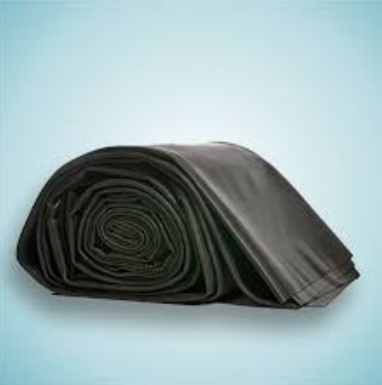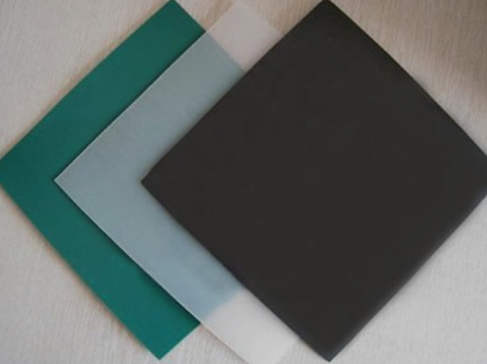- Understanding the Role of Geomembrane Liners in Waste Management
- Innovations in Geomembrane Liners for Water Management
- Geomembrane Liners: A Comprehensive Guide
- The Future of Geomembrane Liners in Civil Engineering
- Geomembrane Liners: Enhancing Landfill Stability
Manager:Alvin Wang
WhatsApp:+62 8983806051
Tel:+86 10-5797-1075
Email:steelwang@okorder.com
Address:3rd Floor, No.2 Building, No.1 Sanlihe Road
Does HDPE geomembrane degrade in sunlight?
High Density Polyethylene (HDPE) geomembranes have always been highly recognized due to their durability, impermeability, and resistance to various environmental factors. However, among engineers and environment experts one of the concerns is whether or not hdpe Geomembranes undergo degradation after exposure to sunlight. In this discourse we look into effects of sunlight on HDPE geomembranes, types of UV radiation that cause degradation and ways of mitigating the decline.

Understanding Sunlight Exposure
Sunlight and UV Radiation:
Sunlight is made up of different wavelengths of electromagnetic radiations including visible light, infrared radiation and ultraviolet(UV)radiation. Polymers are said to degrade under UV radiation especially at UV-A and UV-B wavelengths which affects them much more than High-density Polyethylene(HDPE)geomembranes do. Polymers engage in chemical reactions that lead to chain scission oxidation, embrittlement when exposed to ultra-violet radiations hence causing material properties deterioration.
Effects of Sunlight on HDPE Geomembrane
1. UV Degradation:
Long term exposure to direct sunlight makes HDPE geomembranes vulnerable to Ultraviolet degradation (UV). The polymer chains in its structure disintegrate as a result of the process resulting in reduced mechanical strength, stiffness and flexibility. Continuous ultraviolet light breaking down the polymer chains over time leads to hardening, cracking, loss of impermeability that fades away under its action rendering these membranes ineffective for containment applications.
2. Surface Degradation:
The surface layer falls victim for photochemical oxidation chalking out and discoloring when impacted by UV-radiation primarily from sun. More so some parts exposed to high intensity receivers can become brittle thereby leading it into many flaws if begins with surface cracks for instance experienced by hydrocarbon molecules being acted upon by quanta at particular positions on their surfaces. The overall degradation process of HDPE geomembranes is influenced by surface degradation making it weak and shortens its service life besides reducing its performance.
3. Impact on Mechanical Properties:
HDPE geomembrane’s mechanical properties, which include tensile strength, elongation at break, and tear resistance are significantly affected by UV degradation. When polymer chains decompose due to ultra-violet exposure, the geomembrane weakens further leaving them less elastic even for low mechanical stresses. Consequently, deterioration in mechanical properties compromises the long-term performance of HDPE geomembranes leading to failures eventually affecting their structural integrity.
Mitigation Strategies
1. UV Stabilizers:
Incorporating UV stabilizers during the manufacture of HDPE geomembranes is one way of mitigating against UV degradation. These act as antioxidants and free radical scavengers that slow down or inhibit the process started by ultraviolet radiations thus offering some form of defence to the product under consideration. Such geomembranes have a longer duration and show improved resistance against ultraviolet irradiation in outdoor circumstances due to these stabilizers.
2. Carbon Black Additives:
Carbon black additives are commonly included in HDPE geomembranes to protect them from harmful effects of sunlight-induced deterioration processes. Acting as light-absorbing pigments, carbon black particles absorb and dissipate the ultraviolet (UV) radiation before it can reach the polymer chains in HDPE membranes. Therefore such membranes containing carbon black additives would have increased resistance towards UV, lesser degrees of surface damage as well as longer lifespan when placed outside.
3. Protective Covers:
These can be used on top or beside an HDPE lining system in order to block sunrays from reaching it directly so that they do not cause more harm than they prevent any damage on its parts leading to shrinkage sometimes due mainly because they have been exposed too much besides other external factors like weathering for instance plus keeping moisture. That is why these materials are used as covers to separate the geomembrane from sun hence it lasts for a longer time since no UV rays are absorbed directly by it. Soil, Geotextiles or shading structures could be used in this manner that will reduce the rate of UV exposure and thus serve as protectors.
4. Maintenance and Inspection:
Maintenance and inspection of HDPE geomembranes is a must if it is to be possible to identify signs of degradation and correct them on time. Visual inspections, seam testing, and performance evaluations assist in early detection of UV damage such as surface cracking, discoloration or loss of flexibility. It is necessary to undertake timely repairs; reinforce the seams or provide protection so as to reduce degradation risks thus prolonging HDPE geomembranes’ life span.

Conclusion
In conclusion, it is found that HDPE geomembranes can degrade after having been under the sun for a long time due to the ultraviolet radiation effects. Mechanical properties deteriorate with UV degradation and this happens together with surface degradation and failure of impermeability in geomembranes which makes them ineffective for containment applications. By understanding the mechanisms of UV degradation and using appropriate mitigation strategies such as applying UV stabilizers; carbon black additives; protective covers; maintenance practices etc., one can minimize their negative impact of sunlight on HDPE geomembranes thereby guaranteeing their long-term performance and durability outdoors.
- Previous:How long does it take HDPE geomembrane to degrade?
- Next:Is HDPE geomembrane harmful to humans?
-
2024-12-05Geomembrane Liners: A Comprehensive Guide






